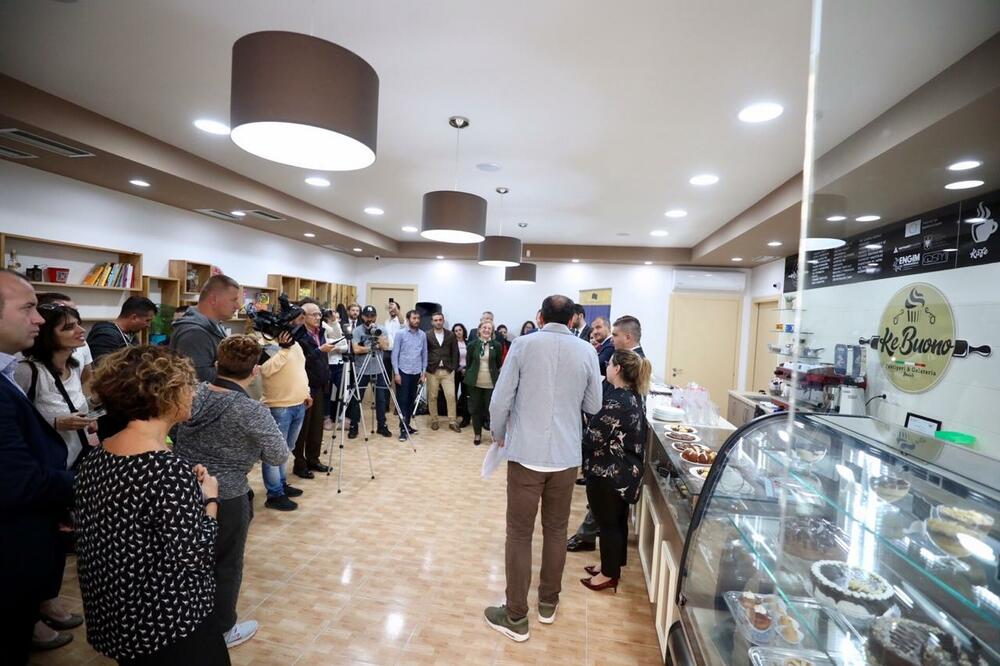Apart from the cakes, what sets the pastry shop "Ke buono" in Fijer, south of Tirana apart from the others is that it is staffed by women who were victims of organized crime and that it is located in a business premises that belonged to a local criminal.
Along with the cafe bookstore "Kinfolk" in Durrës and the souvenir shop "Social crafting garage" in Saranda, "Ke buono" is one of the examples of how the Albanian authorities have found a new use for property, which they permanently confiscated from criminals in court proceedings. With this, they want to show the locals that crime does not pay, but also that the property confiscated in this way can be used in the right way.
"Through the social reuse of confiscated property, the biggest message to the community is that what was stolen can be returned to the community," she pointed out for Center for Investigative Journalism of Montenegro (CIN-CG) program director of the non-governmental organization "Partners Albania" Clotilda Costa.
Through reuse, confiscated assets that are not sold or used by institutions are transformed into spaces or small businesses to support crime victims or affected communities.
"Property that once belonged to criminal groups has been transformed into opportunities for social or economic development," explains Kosta.
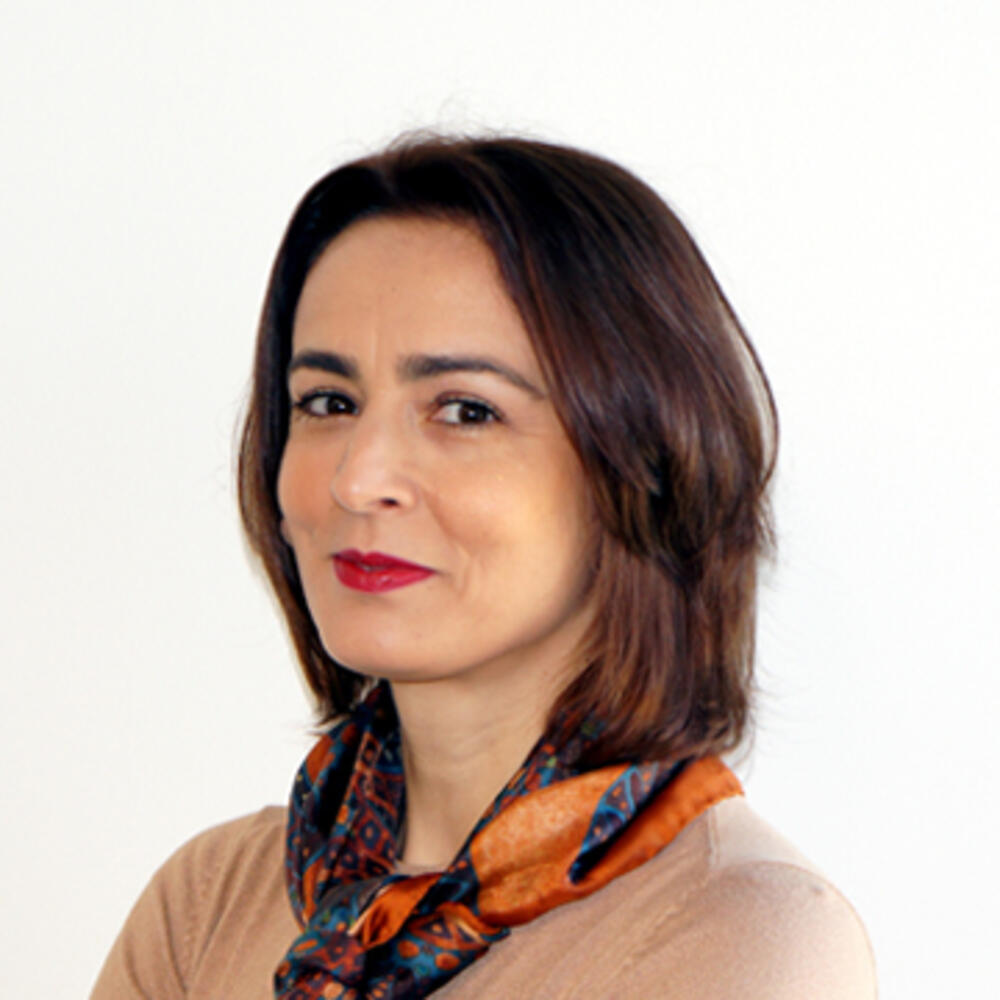
Montenegro, however, cannot boast of a large number of seized properties, and even less of having found a new purpose for those properties.
So far, according to the data of the Administration for Cadastre and State Property, since 2015, only four properties have been transferred to the state, and for now the only plan is to try to sell them.
The apartment of Dejan Rovčanin In 2015, in the "green mile" procedure, convicted for international drug trafficking.
Four years later, in the proceedings against a former high-ranking official of the Democratic Party of Socialists (DPS) Svetozar Marović the villa was taken from Radojica Krstović and apartment of Dejan Krulanović, as well as the apartment of Miloš Marović. The elder Marović admitted that he is the head of a criminal group that has robbed the Budva Municipality of tens of millions of euros.
The Administration for Cadastre and State Property told CIN-CG that so far only one auction has been conducted for the sale of a family residential house - a villa, where there were no interested buyers.
According to the public invitation of the Administration, they tried to sell a villa of several hundred square meters in the Babin Do neighborhood of Budva for a little over 1,4 million euros. There was no attempt to sell the other permanently confiscated property.
"Regarding other immovable properties, the proposal procedures for dealing with them are in progress", said the Administration for CIN-CG.
Even the property that was temporarily confiscated was not used but destroyed, so the citizens paid millions in damages. That's how families are Kalić i Saric acquitted of charges of money laundering and drug trafficking, the confiscated property was returned, and millions of compensations were paid from the budget due to improper maintenance and lost profits of the temporarily seized property.
The only law that currently regulates the management of confiscated property is the Law on Confiscation of Property Acquired by Criminal Activity, which is in the process of being amended. However, although the Law is the target of harsh criticism, almost no one even mentions the area of management of confiscated property, and experts explain that this regulation is not sufficient for efficient property management.
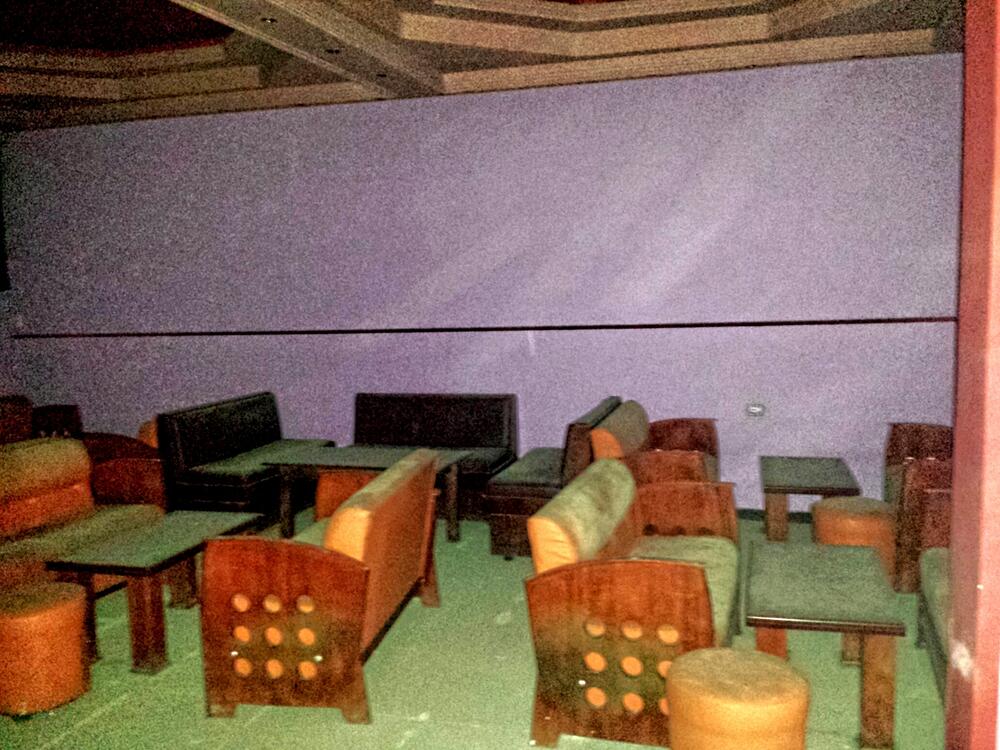
The community must see the benefits of asset forfeiture
The only novelty in the proposed amendments to the Law in the area of property management is that the Government disposes of it - half of its value is disposed of by the Ministry of Justice, 30 percent by the Ministry of Finance, and the remaining 20 percent is used to fill the Alimony Fund.
Assistant Minister of Justice for Criminal and Civil Legislation Ivana Mašanović clarifies for CIN-CG that MoJ funds should be used for the operational needs of the ministry, prosecution, courts, procurement of software, tools, but also that a certain part be returned to the community.
The British proposed, he points out, that these funds be spent on the proposal of the ministries, and in this way the efficiency of the police and prosecutor's office increased by 300 percent.
"It means that this money must not be used for salaries, benefits and the like, but for cars, fuel, computers, software...", emphasized the representative of the Ministry of Justice.
She also assesses that property management is a segment where the community should see the benefits of all procedures of permanent confiscation of property, but she admits that not enough attention is paid to it in our country.
She confirms that almost all countries in the region have an agency that deals with property management, but says that Montenegro is not planning to do so for now. It clarifies that property management could be regulated by a special law, which could eventually provide for the establishment of an agency or a special body that would deal only with management:
"A lot of things are unfinished in terms of property management, someone needs to deal with it seriously".
As positive examples, he cites the Italians, who made a brand out of managing permanently confiscated property. In Italy, the state left the management of these assets to the non-governmental sector.
"In Rome, you come to a complex where there are three houses taken from the mafia, turned into a restaurant, a music studio and a conference hall", the assistant minister of justice shares her experience.
The Bosnians, she adds, have an agency that deals with it, but so do the Albanians, who have completely adopted the Italian model.
"Bosnians, for example, took away the pump and did not fire the workers, but the state took control of it, put it under forced administration and makes money from it," explained Mašanović.
Civil society to use confiscated property
In neighboring Albania, there are three ways in which confiscated property can be used, among which is allocation to institutions at the state or local level, its leasing and use by other institutions, which also includes social use by civil society organizations.
Any civil society organization in the country can submit a request to the Agency for the Management of Confiscated Property (AAPSK) for the use of confiscated property.
Based on the agreement with the Agency, three confiscated spaces were put to use, where all NGOs in the country were invited to submit project proposals. The winners signed contracts with the non-governmental organization "Partners Albania" for the management of funds for a period of 12 to 15 months, and the others with AAPSK for five years for the implementation of the project, with the possibility of extension if the project and established companies continue to deliver services after five years.
Program director of "Partners Albania" Klotilda Kosta told CIN-CG that the former owners of confiscated property were persons convicted of various types of crimes, such as human trafficking, narcotics...
In all cases, their family members continued to live in the cities where the confiscated properties were located and, in some cases, very close to those properties.
In some cases, explains Kosta, they approached the property during the visit, before the decision was made to include them in the project, but also after the property was given to the NGO:
"The families contacted and entered into discussions with the NGO that implemented the project".
In such situations, the communication and presence of the Agency is crucial, adds Kosta, stating that no major incidents have been recorded. He also adds that the fact that the state remains the owner of the property and the fact that it will be used for social purposes contributed to avoiding further controversy with the former owners.
Kosta concludes that reuse sends a message that illegal activities can be defeated by legal means, but also that when everyone - institutions, NGOs and citizens - come together, they can give confiscated property a great social, economic and political value.
Albania: Victims of crimes work in seized bars
Thus, in the pastry shop "Ke buono" in Fijer, 75 percent of the employees are young people, girls and women who are victims of organized crime or were potential victims. It also hosts training aimed at young people who are ex-convicts or are family members of prisoners who face difficult living conditions.
"Social crafting garage" in Saranda is a souvenir shop where you can find 1.000 products made from pebbles from the beaches there. Girls and women who are victims or at risk of being victims of organized crime and domestic violence work there. This space also offers two capacity building programs, one of which is related to cultural heritage and the other to human rights.
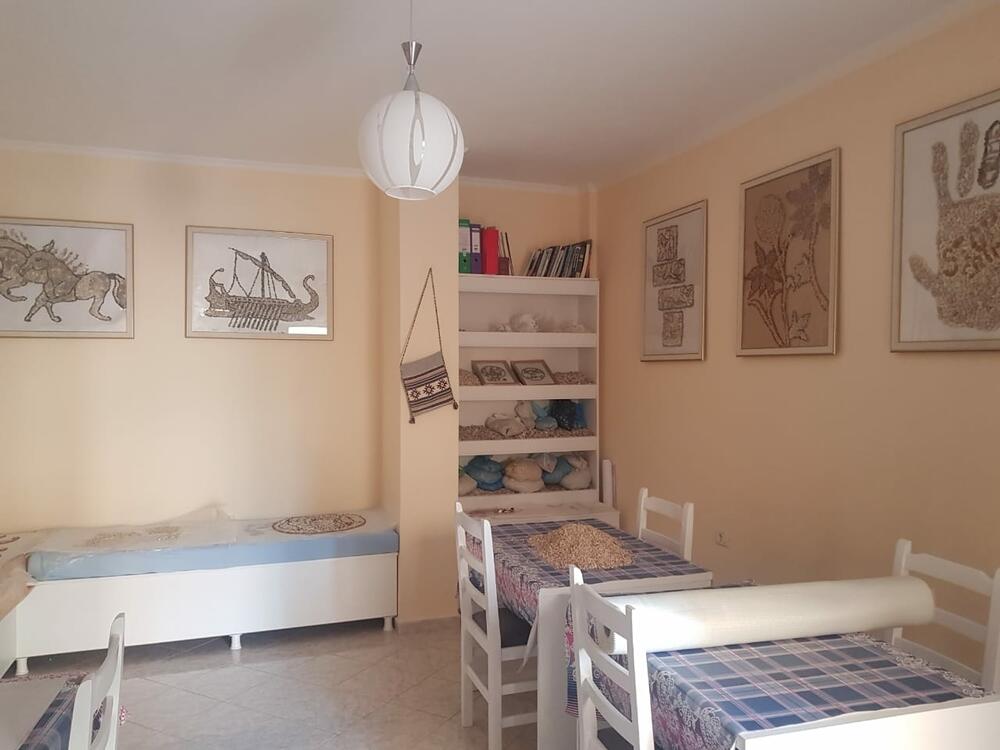
In Durrës, there is a cafe-bookstore "Kinfolk", which was conceived as a multifunctional center intended for young people, above all those who are at risk of juvenile delinquency. In addition to employing more people from vulnerable groups, "Kinfolk", for example, organizes an employment fair, as well as 27 different courses, mostly in foreign languages.
"These are socially oriented companies whose mission is to support marginalized groups that are the target of organized crime, in order to provide them with education, employment and the possibility of integration," Kosta told CIN-CG.
State institutions such as the Agency and the police should, in the opinion of the CIN-CG interlocutor, support them in case of difficulties or problems they might have with the property or the interference of the former owner, local authorities should support them using their services, donor communities should support them with financial schemes to remain viable and society using their services and products.
The manager is liable with his own property
Executive Director of the Network for the Affirmation of the Non-Governmental Sector (MANS) Vanja Ćalović Marković for CIN-CG points out that they repeatedly pointed out that it is necessary to change the provisions of the law related to the management of confiscated property, as well as the way in which it can be leased to third parties.
Ćalović Marković adds that they once again invite the authorities to consider the Italian experience where, as he explains, confiscated property is managed by administrators, who receive significant compensation for their work, but are responsible for any problems with their entire property if they arise.
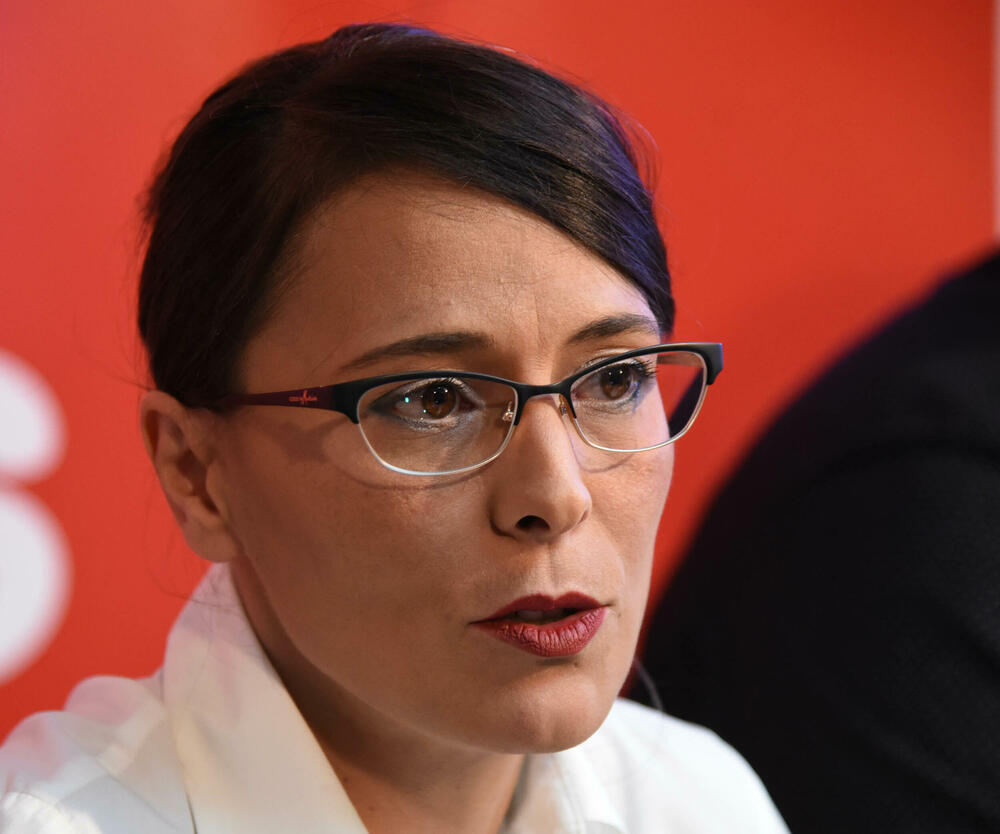
"When the manager guarantees it with his property, it cannot happen that something is destroyed, stolen or alienated in any way", she explains.
It is especially significant, adds the director of MANS, when there is no interested person or company that wants to apply for a tender to take over the management of the property and everything falls on the state. And in such situations, she notes, Italy has a very good experience which implies that these assets are given for humanitarian purposes - to associations of parents of children with special needs, hospitals, schools...
"And in this way, a double goal is achieved, it prevents criminals from getting to the confiscated property through related persons, and sends a message to the public that the property is being confiscated in the public interest," points out Ćalović Marković.
She adds that using confiscated property for humanitarian and social purposes is good not only to help the community, but also because then there is no revenge from criminals.
"Imagine now that you take the property from the blacksmiths and skalars, no one will come and take those business premises. In such situations, build a police station, a kindergarten, something that in no way provokes their revenge", points out Ćalović Marković.
She emphasizes that during the period of temporary confiscation of property, it is especially important to maintain its value, but also to resolve the issue of state responsibility in those cases. She explains that in a situation where criminal structures are the owners of companies that have some legal activities, it is very difficult to ensure that they, after confiscation, function the way they functioned before.
"For example, in the case of Kalić, when the illegal cash flow stopped flowing into their companies, their value fell, and therefore we all had to bear the responsibility," the executive director of MANS points out.
In Italian law, this is also prevented - that if the situation on the market affects it, then there is no responsibility for the state.
"There are very concrete solutions that have been created in practice and there is no need to invent hot water, we should learn from them and adapt it to our system", concluded Ćalović Marković.
Montenegro has not taken away anything for four years
Even the conduct of financial investigations in Montenegro has so far yielded almost no results, so, as CIN-CG previously wrote, in the last seven years, according to the reports of the prosecutor's offices, the Special State Prosecutor's Office (SDT) managed to permanently confiscate only two apartments and 3.063 square meters of land, which it proved were acquired by crime. For the same period, the Higher State Prosecutor's Office in Podgorica seized only one apartment, and the Higher State Prosecutor's Office in Bjelopolje confiscated 15 euros!
There are 17 prosecutor's offices in Montenegro, including the Supreme State Prosecutor's Office.
The European Union (EU) has repeatedly warned that financial investigations are not launched sufficiently and in parallel with criminal investigations, and that the results in that area must be better. And in this year's finding of the European Commission on Montenegro, it is repeated that the results of financial investigations and seizure of assets for criminal acts in the field of high corruption must be significantly improved.
It is added that the problem of an incomplete cadastre prevents the effectiveness of financial investigations and seizure of property and that this problem has not yet been solved.
The report of the Prosecutor's Council for last year showed that financial investigations lasted up to six years.
Since 2015, SDT has been constantly expanding the team of the Department for Financial Investigations, but with the latest changes, it reduced one of the criteria - from five to three, the required years of experience to do the job were reduced.
In the Higher State Prosecutor's Office in Podgorica, there are no special departments specialized in the efficient management of financial investigations.
The protector will file lawsuits for confiscation of property
The government recently adopted a proposal to amend the Law on Confiscation of Assets Acquired by Criminal Activity, despite the fact that the public had not had the opportunity to see the text of the draft until then. This was met with fierce criticism not only from the civil sector, but also from the European Commission, which gave a negative opinion and said that public participation is expected in the process of changing the text.
Among other things, the proposal for amendments to the Law foresees that only in the case of criminal offenses within the jurisdiction of the SDT, a final conviction will not be awaited, but the process of civil confiscation of property can be initiated immediately after the confirmation of the indictment. The Law, which was amended in this way, was condemned by the public, because the essence of the amendments was supposed to be to facilitate the process of confiscation of property, precisely through a civil procedure that should not wait for the confirmation of the indictment.
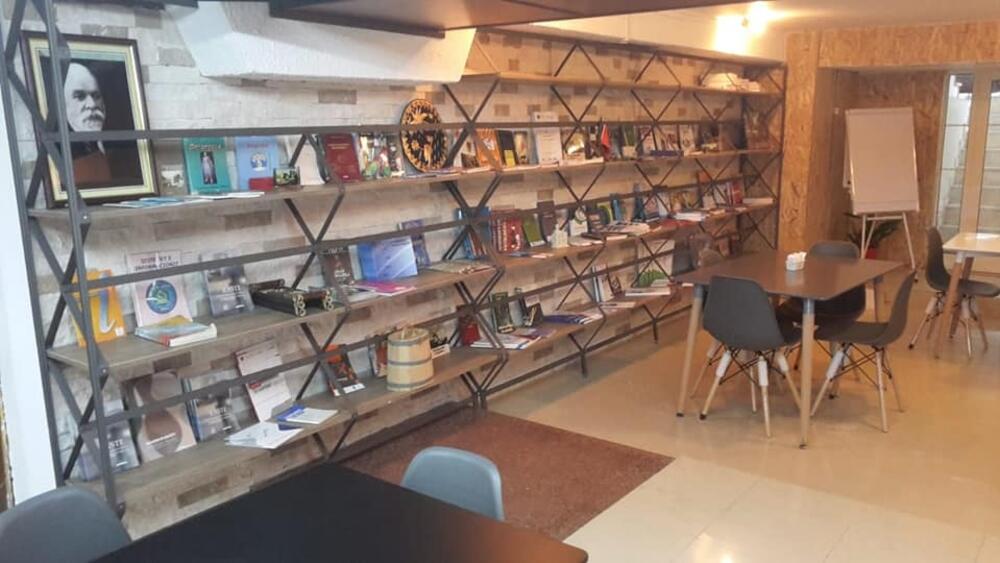
Mašanović stated for CIN-CG that they assessed that they should wait for the confirmation of the indictment in order to protect the rights of the person whose property is confiscated, but also to respect the standards of the European Union. However, countries with a much stronger tradition of the rule of law - Great Britain, the Netherlands and Italy - do not require confirmation of the indictment in order to conduct this procedure.
Assets to be confiscated after confirmation of the indictment must be over 50.000 euros, and can be confiscated 10 years before or after the commission of the criminal offense, starting in 2010.
"It is important for us that we included acts of organized crime, which were introduced in our country in 2010. It would be difficult to prove something that happened 30 years ago now," explains Mašanović.
When the indictment is confirmed, regardless of the end of the criminal proceedings, the protector of property legal interests initiates a lawsuit, and the defendant bears the burden of proving the basis for acquiring the property.
"It is literally a lawsuit to determine property rights, only here the state claims that it is theirs, and you prove that it is not. In civil proceedings, it is easier to make a decision in favor of the state, and in criminal proceedings, if there is even the slightest doubt that someone is guilty, he is acquitted," explains Mašanović.
These changes provide for civil, extended and direct confiscation of property, but also the possibility of undeclared property and income being taxed at 80 percent.
"If the prosecutor in the financial investigation does not have solid evidence, there is a possibility to forward the case file to the tax administration and to have that property taxed," said Mašanović.
All confiscation procedures can be conducted for criminal offenses punishable by a prison sentence of four years or more.
If it is not about criminal acts under the competence of the SDT, the conviction must be confirmed, in order to conduct the procedure of confiscation of property. The news is that the deadline for completing the property confiscation procedure has been halved - from two to one year.
The financial investigation team has been expanded, she adds, so now the Agency for the Prevention of Corruption (ASK) is also in the team.
KAS told CIN-CG that the Agency's preventive work on collecting data on the assets of public officials and civil servants with the obligation to submit reports on income and assets will definitely be useful to the prosecution when it starts financial investigations.
"We hope that a detailed analysis of the compliance of the legal provisions of the new law with the Law on Prevention of Corruption, the Law on Criminal Procedure and the Criminal Code will be carried out," said the institution headed by Jelena Perović.
The process of amending the law has been going on for almost two years, and the MoJ partly blames the European partners for it, stating that the process with the European Commission (EC) has been going on for a year: "Until now, it has not happened that the EC has waited longer than 6 months".
And while in Fijer, Durrës and Saranda, the state helps victims of violence or other vulnerable categories with seized property, in Montenegro it is empty, buys dust and costs the state due to expensive maintenance.
Basic prosecutor's offices should initiate financial investigations
The main state prosecutor's offices in Montenegro did not initiate any financial investigation until November last year.
Mašanović assesses that basic prosecutor's offices should finally start dealing with financial investigations.
"Essentially, the majority of criminal offenses from which property can be confiscated are under the jurisdiction of the basic state prosecutor's offices," the representative of the MoJ points out.

Bonus video:



